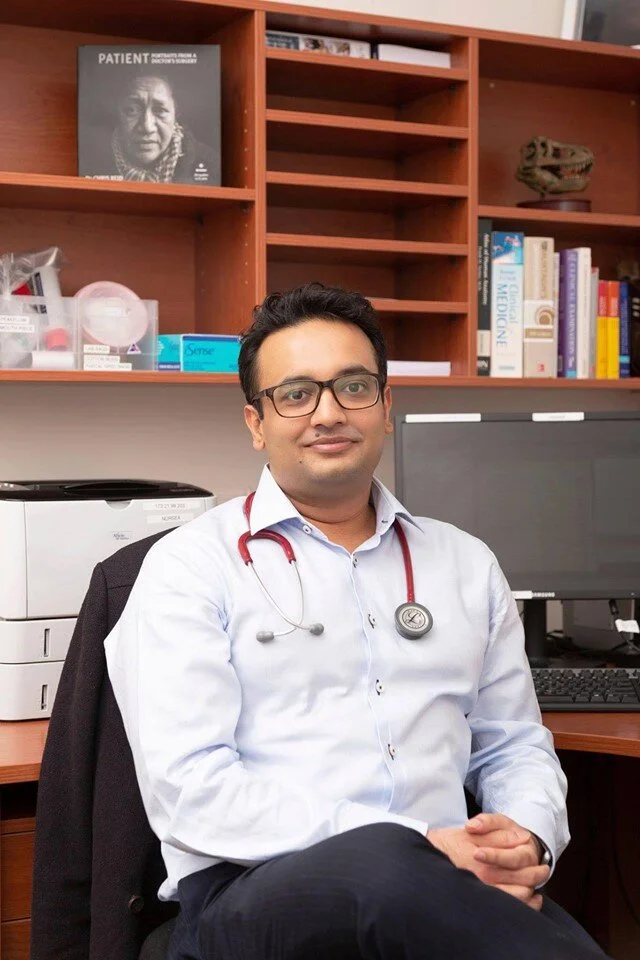Dr Gaurav Sharma
The way we live, think and work has changed drastically over the last few weeks. While coronavirus has had a lot of negative impact across the board, the pandemic has also helped implement much needed change in many sectors. The saying that ‘necessity is the mother of all invention’ cannot be more true than in the current climate. While work from home has existed for many industries on a smaller level, there has been a significant push to adopt and embrace this on a larger scale in the last month.
One industry that has largely stayed away from remote work until now has been healthcare. This has been due to hesitance from both the provider side (doctors, nurses, physios, psychologists and other healthcare providers) and the consumer side (the patients).
Most of the medical practices have transitioned to virtual consultations (phone, email or video) during the course of this pandemic. For a lot of general practices the wheels were set in motion as per the advice of Royal New Zealand College of General Practitioners (RNZCGP) well before the Alert Level 4 lockdown was set in place. This was to protect patients by reducing the number of sick and vulnerable people gathering in medical centres, which can contribute to the spread of infectious disease.
Our own medical practice in Nawton, Hamilton was onto virtual consults quite early on in the pandemic but it still took a bit of getting used to. It has been a steep learning curve for all parties involved as both consumers and providers have had to learn new ways of accessing and delivering best practice care. As we continue to foray into this non-traditional way of establishing a doctor-patient relationship, below is a list of practical tips patients can equip themselves with to make the most of the virtual appointments with healthcare providers for non Covid-19 consults:
-
Check your appointment time and make sure you have at least thirty minutes extra time set side after your booked appointment in case the healthcare provider is running behind schedule.
-
Make sure your hardware is working. If it’s a phone consult check that your phone is switched on, handy and not on silent. Many consults get delayed because people leave their phones in another room or don’t have the ringtone on. Similarly, if it’s going to be a video consult check that your microphone, camera and video software are working.
-
If possible have a quiet space where you can speak from. This can be hard if you have kids, pets and other family members at home. Setting aside time and space for your consultation not only honours the appointment but also helps establish a better rapport between the care provider and the patient. It also ensures that the practitioner can ask you any confidential questions that you may not want to be asked about in front of other family members or kids.
-
On the contrary, virtual consults also help increase access for your support person to be present with you if needed. If you do have a support person, introducing them at the start of your consult to the practitioner can help with a better flow of information.
-
If possible write down all the concerns and symptoms you want to discuss with the healthcare provider so that you don’t forget anything during the call and save yourself from having to reschedule another appointment later.
-
One of the limitations of virtual consults is that it limits the non verbal cues we often pick up from patients. This is especially true for a phone consult where we can’t assess the smile on people’s faces, the twinkle in their eyes or tears on their cheeks. If you are feeling a negative or a positive emotion, you might have to express it verbally by letting the practitioner on the other side know how you are feeling so they can take that into consideration.
-
If you are requesting prescriptions have a list of your medications handy. It’s a lot easier and safer if you can name the pills rather than describe their colours and sizes.
-
Have the name of pharmacy you want to pick up your scripts from ready, as most scripts are now being faxed to the pharmacies directly. Virtual consults are a game-changer in the longer run, as both providers and consumers will continue to see the benefit long after the Covid-19 dust settles. How patients derive the most benefit from these consults will be based on some of these simple steps we can all take to help make care more efficient, optimum & safe.
– by Dr Gaurav Sharma, who works as a General Practitioner in Nawton, Hamilton. He is the 2020 Labour Party candidate for Parliament from Hamilton West. He is a former Fulbright Scholar and has a Master in Business Administration from Washington D.C.




